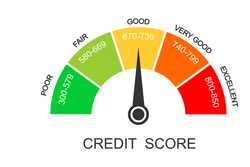Causes of Inflation (& How to Protect Yourself)

Our evaluations and opinions are not influenced by our advertising relationships, but we may earn a commission from our partners’ links. This content is created by TIME Stamped, under TIME’s direction and produced in accordance with TIME’s editorial guidelines and overseen by TIME’s editorial staff. Learn more about it.
In 1974, then-Vice President Gerald Ford became president after Richard Nixon resigned the office due to the Watergate scandal. One of the new president’s first moves was to declare inflation to be “public enemy number one.” He instituted the Whip Inflation Now (WIN) program, which explained actions people could take to beat it back.
Despite Ford’s best efforts with WIN, he lost the presidency in 1976 to Jimmy Carter, partly because the country remained subject to high inflation that wouldn’t end until the early 1980s (though his pardon of Nixon didn’t help).
Ford’s political hopes were dashed. Fast-forward to 2024, and lingering inflation brought on by the COVID-19 pandemic threatens President Joe Biden's reelection. His administration has made some progress, bringing the rate down from a peak of 9.1% in June 2022 to only 3.2% as of February 2024. Whether the effort will be enough remains to be seen.
No doubt about it: Inflation is a powerful political and economic force. So what causes it, and how can you shield yourself from it?
Economic experts generally differ on the precise causes of inflation, but they do agree on what it is—a sustained rise in general price levels. Here are some common explanations for it.
When the cost of wages and raw materials rises, this can lift, or “push,” how much it costs to produce goods, resulting in a rise in the prices of those goods. Therefore, the purchasing power of a dollar will decrease.
When the demand for goods is higher than the supply, it can “pull” the price of those goods up. The effect is the same as with cost-push: prices rise.
When people expect inflation, they can take actions that actually cause or increase it. For example, when people believe that the cost of living will increase, they might demand an increase in wages to offset their anticipation. If enough people do this, it can drive up the cost of labor, thereby spurring inflation.
Outside of the impact on the larger economy, inflation can have consequences that affect people in their day-to-day lives, including the following:
Perhaps the most obvious impact is that when inflation increases, the purchasing power of a dollar falls. For consumers this means that their money will be able to buy fewer things.
Typically, when inflation rises, interest rates increase for borrowers. This can actually help those on fixed mortgages—i.e. mortgages whose interest rate will not increase—as they now find themselves paying off their debt with inflated money. However, for others who might be looking to purchase a home, higher interest rates can make it harder to get a mortgage.
According to the Federal Reserve Bank of Dallas’ analysis of government data, low-income households suffer the most from inflation. They spend more of their income on essentials, which increase in price during inflationary times.
And unlike some middle or high-income households, they cannot as easily switch to consuming cheaper goods and generic brands, as they probably already use those.
Low-income earners also have less ability to stock up on goods when prices are favorable, due to a lack of ready cash.
Shielding yourself from the ill effects of inflation means reducing spending while finding ways to slow down the rate at which your money is losing purchasing power. For instance, consumers can move money into a high-yield savings account, where it can earn greater returns. They can also trim their budgets and look for ways to increase their income.
Those with enough money to invest can turn to offerings that usually do well in inflation. One such offering is commodities, which the Financial Industry Regulatory Authority (FINRA) defines as the basic goods of everyday life, such as wheat, coffee, precious metals, livestock, and oil and gas. The value of commodities typically rises alongside inflation.
Treasury inflation-protected securities (TIPS), which are government bonds designed to adjust to inflation, are another possible investment. You can purchase TIPS directly from the U.S. government, or through online brokerages, such as Public.
$0 stock & ETF trades.
1.25% crypto fee.
$100 treasury bills.
You can also consider investing in real estate. For example, investors could put money into real estate investment trusts (REITs), which are publicly traded companies that profit from real estate. You can purchase REITs on the stock market, or through crowdfunded real estate investing platforms such as YieldStreet and RealtyMogul.
YieldStreet | RealtyMogul | |
|---|---|---|
| Fees | 0% - 2% (varies by investment type) | 1% to 1.25% management fees (additional fees may apply); Income REIT has a 4.5% maximum fee, and Apartment Growth REIT has a 4.75% maximum fee |
| Minimum investment | $10,000 | $5,000 |
| Welcome offer | N/A | N/A |
Inflation can cause economic and psychological stress, especially for low-income families, so, when faced with high inflation, it’s important to find ways to counteract the declining purchasing power of your money.
Understanding inflation’s causes and employing strategies to insulate yourself from its effects can go a long way in protecting your financial well-being and peace of mind. Everything from cutting your budget, paying down debt, increasing your income, improving your savings interest rate, and making targeted investments (if you have the cash) should be on the table.
Yes, in some cases. For instance, homeowners with fixed mortgages can lock themselves in at low interest rates, and then repay their loan with money that’s not worth as much as it was prior to the inflationary period.
In a word: consumers. As purchasing power decreases, it takes more cash to buy goods and services. Prices can change quickly, while wages generally take longer to adjust. This can be particularly painful for people who live on a fixed or low income.
Battling inflation requires you to find ways to grow your money faster than inflation can depreciate it. Some of the recommended techniques include living on a strict budget to rein in unnecessary spending, ensuring you have multiple streams of income and (if possible) sound investments, transferring savings to a high-yield account with a better interest rate than a traditional savings account, and eliminating high-interest debts.
The information presented here is created by TIME Stamped and overseen by TIME editorial staff. To learn more, see our About Us page.




